Learn to write salary negotiation email 11 templates tips. Find how respond an offer letter, negotiate lowball offer, counter your minimum acceptable salary.
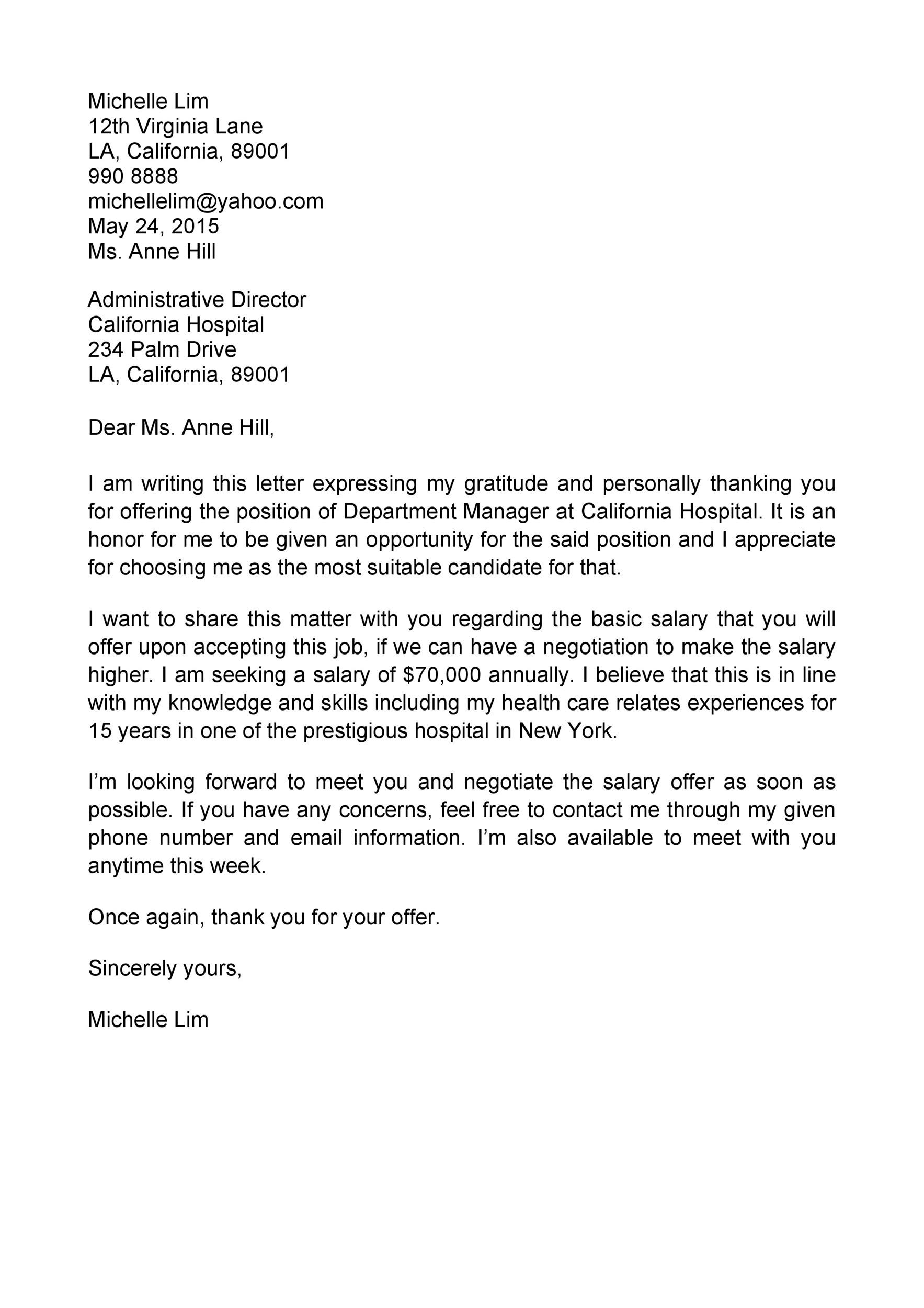 Here seven examples salary negotiation emails tailored various situations. Salary Negotiation Email Examples 1: Negotiating Job Offer. Subject: Salary Discussion [Job Title] Dear [Hiring Manager's Name],
Here seven examples salary negotiation emails tailored various situations. Salary Negotiation Email Examples 1: Negotiating Job Offer. Subject: Salary Discussion [Job Title] Dear [Hiring Manager's Name],
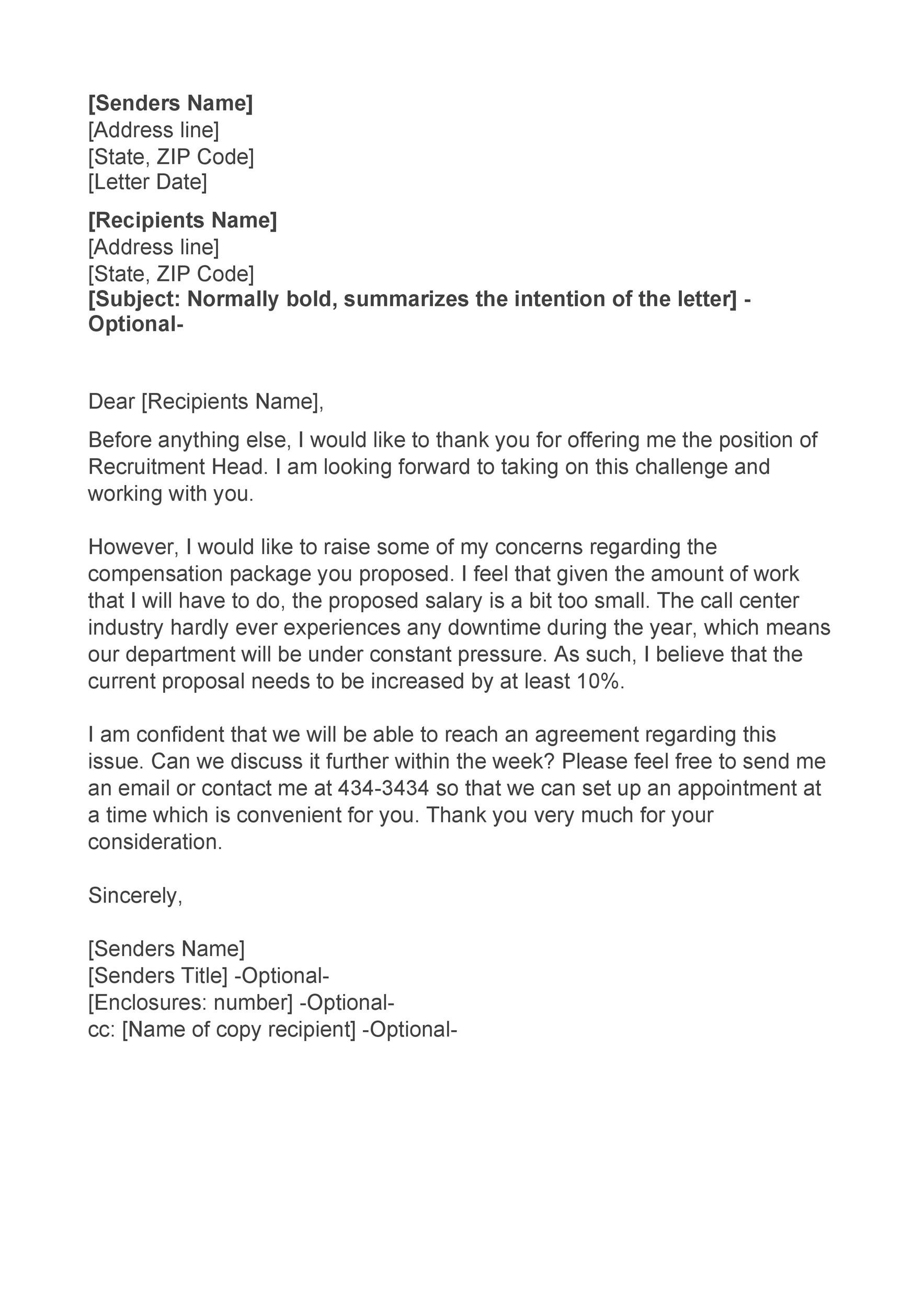 Learn to write perfect salary negotiation email these 20 templates different situations. Find the key elements, tips, strategies get best compensation package your job role.
Learn to write perfect salary negotiation email these 20 templates different situations. Find the key elements, tips, strategies get best compensation package your job role.
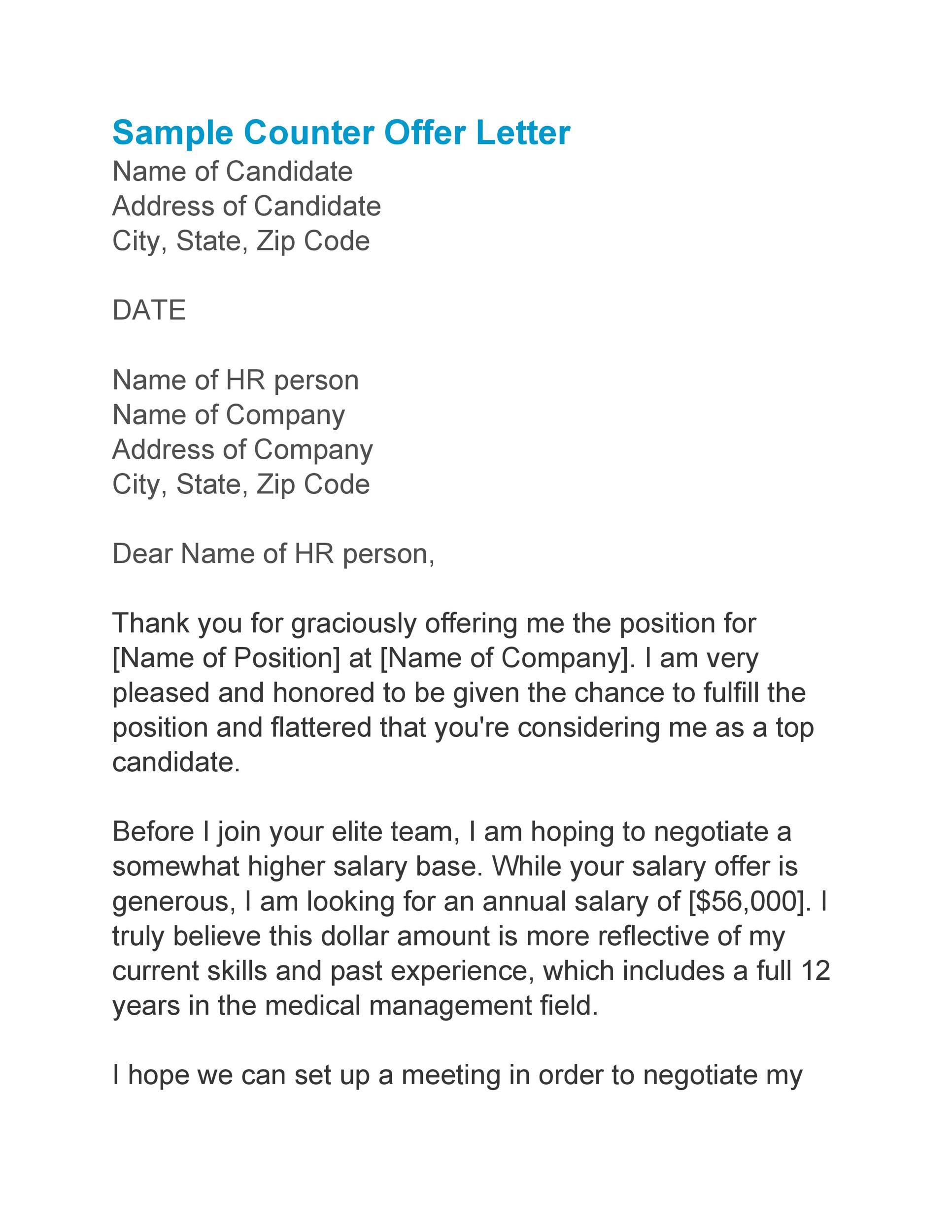 Learn to negotiate salary confidence professionalism 20 email examples different scenarios. Find how research worth, craft persuasive message, follow effectively.
Learn to negotiate salary confidence professionalism 20 email examples different scenarios. Find how research worth, craft persuasive message, follow effectively.
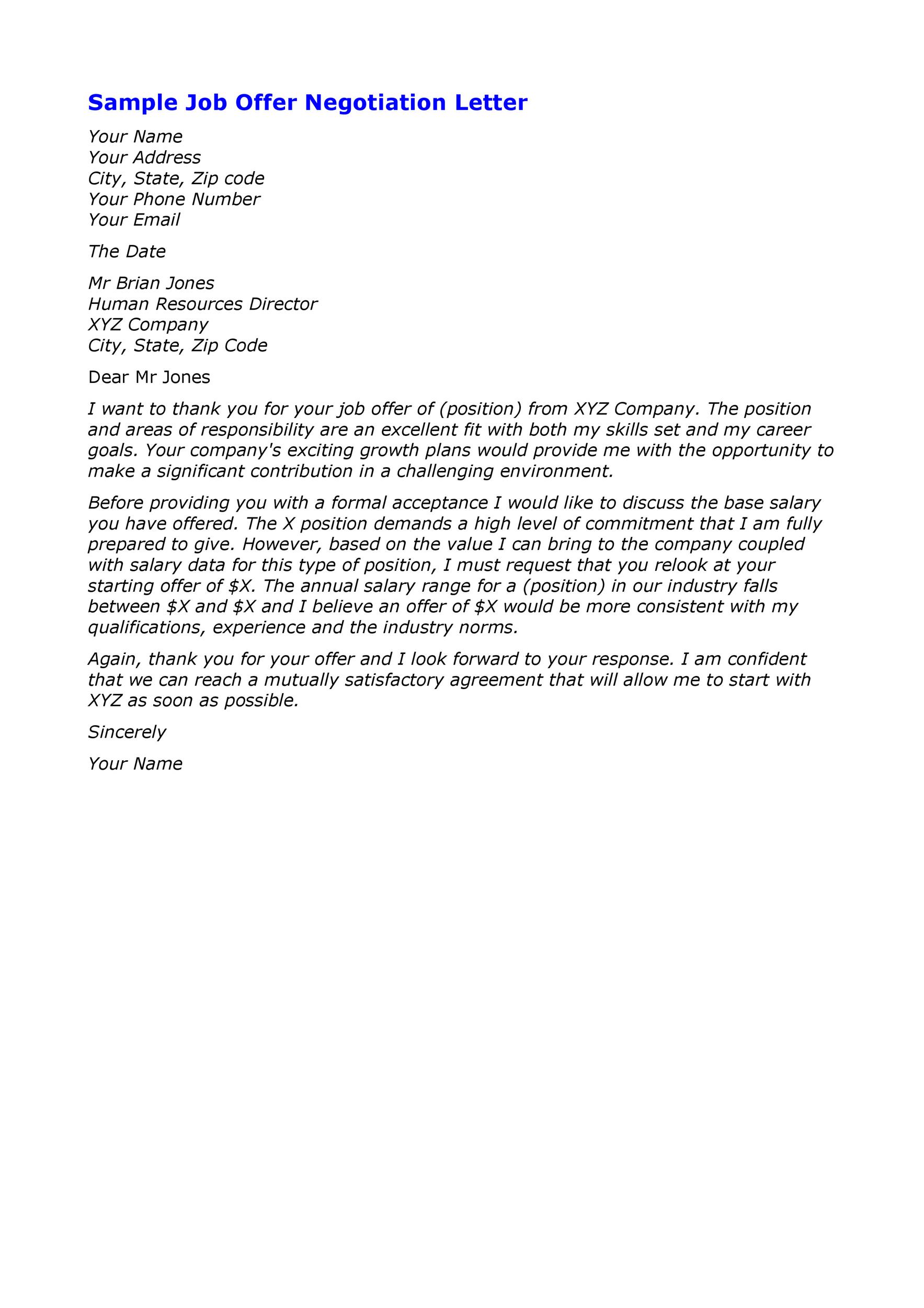 8 salary negotiation email samples. Here, put practice expert advice 8 salary negotiation samples you use. addition, provide negotiation samples some the common reasons you'll to for money, well how can manage process counter negotiations, to request pay rise .
8 salary negotiation email samples. Here, put practice expert advice 8 salary negotiation samples you use. addition, provide negotiation samples some the common reasons you'll to for money, well how can manage process counter negotiations, to request pay rise .
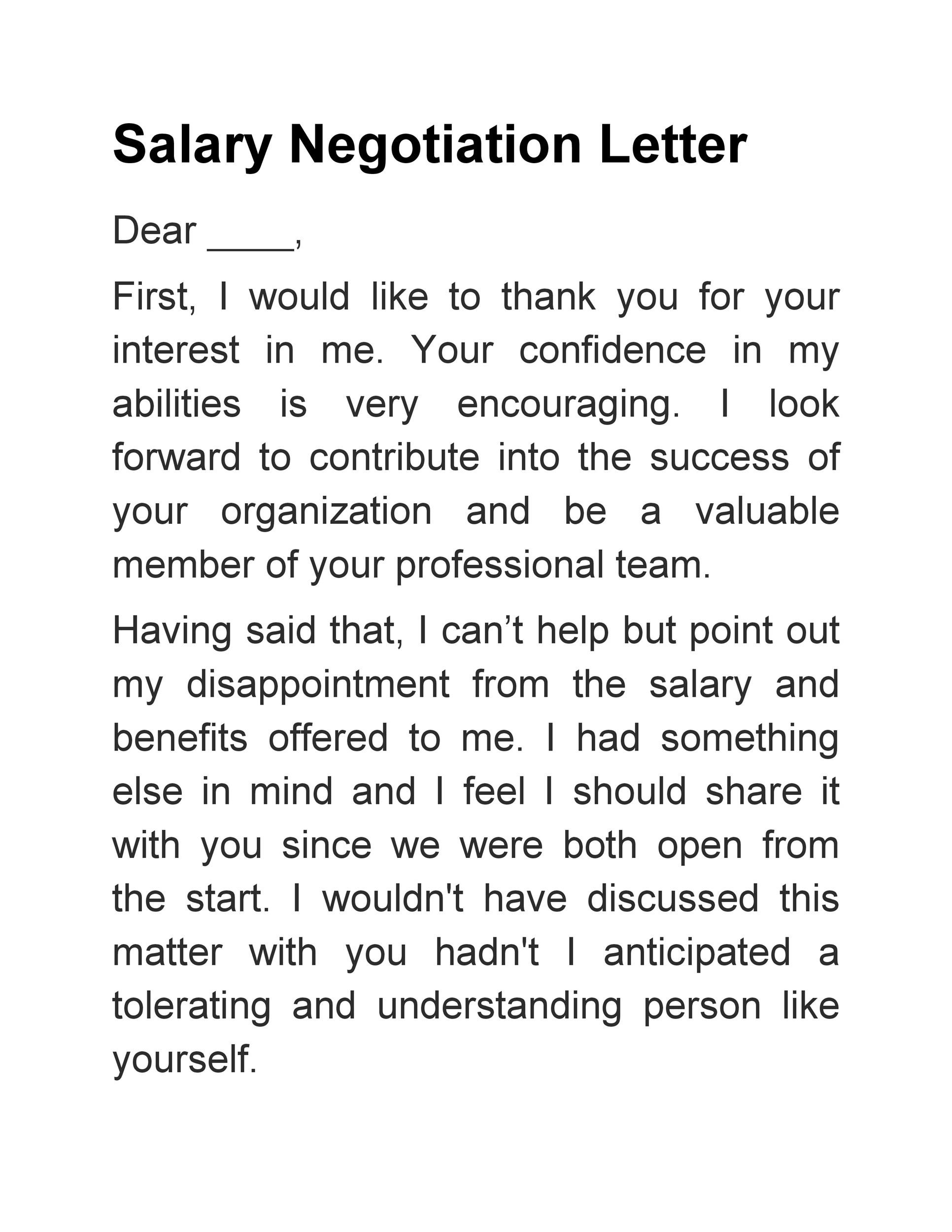 These salary negotiation email samples tips help craft email negotiation script, without discussing matter the hiring manager face face. You Start Writing. Complete negotiation prep worksheet familiarize with effective salary negotiation techniques. resources give the .
These salary negotiation email samples tips help craft email negotiation script, without discussing matter the hiring manager face face. You Start Writing. Complete negotiation prep worksheet familiarize with effective salary negotiation techniques. resources give the .
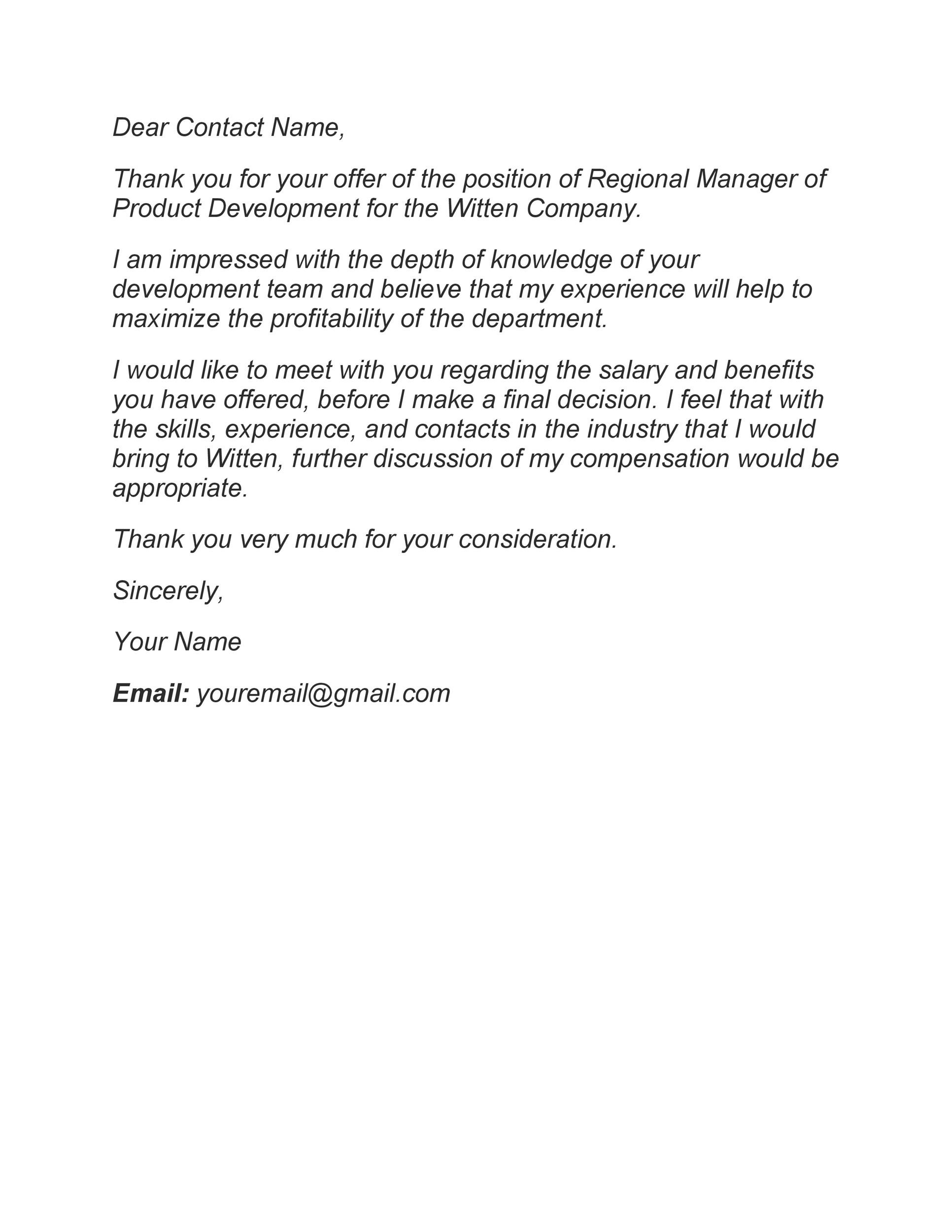 Learn to write salary negotiation email tips, examples, templates. Find how research, position, format request a higher salary benefits.
Learn to write salary negotiation email tips, examples, templates. Find how research, position, format request a higher salary benefits.
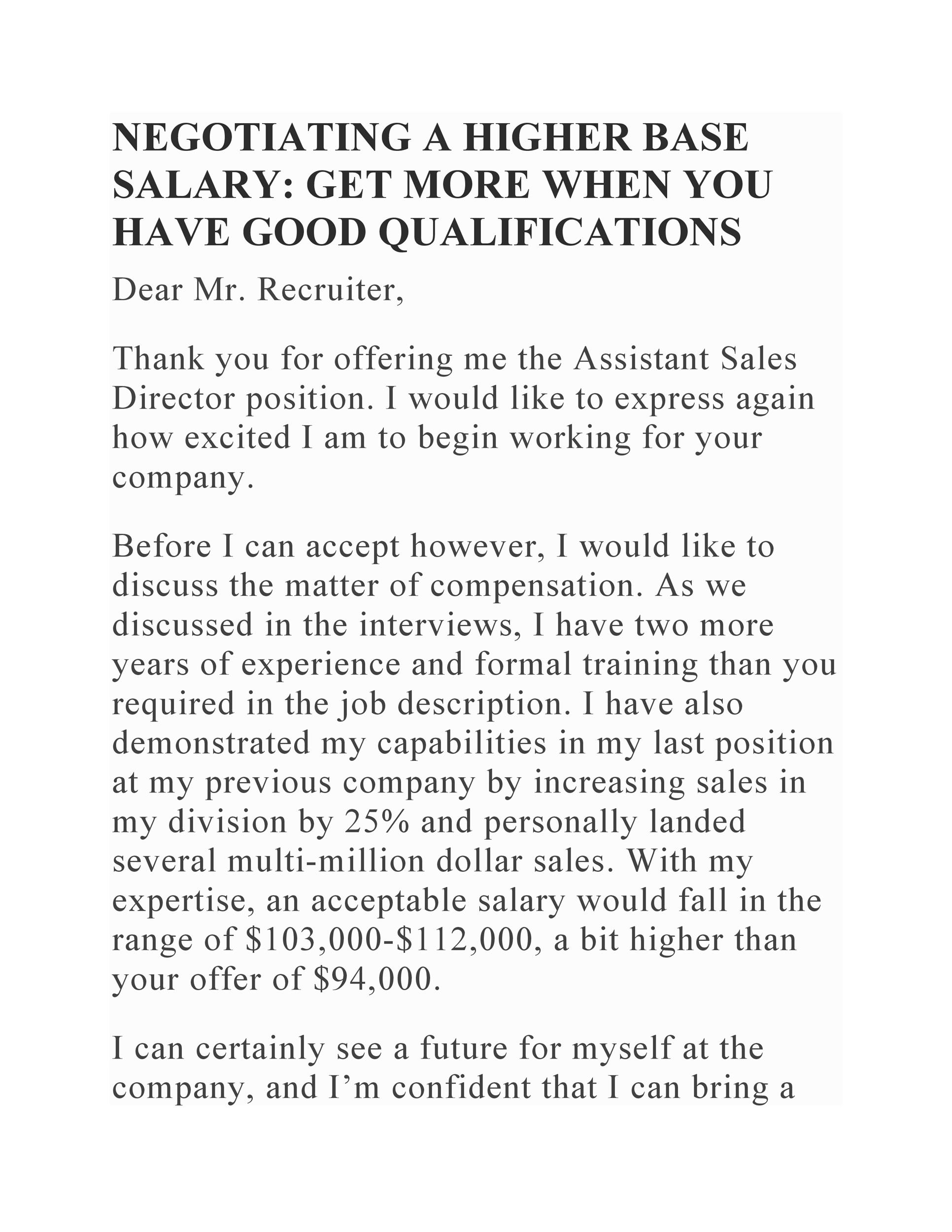 Learn to negotiate job offer a well-written salary negotiation email. examples what include, to structure, when send email get best results.
Learn to negotiate job offer a well-written salary negotiation email. examples what include, to structure, when send email get best results.
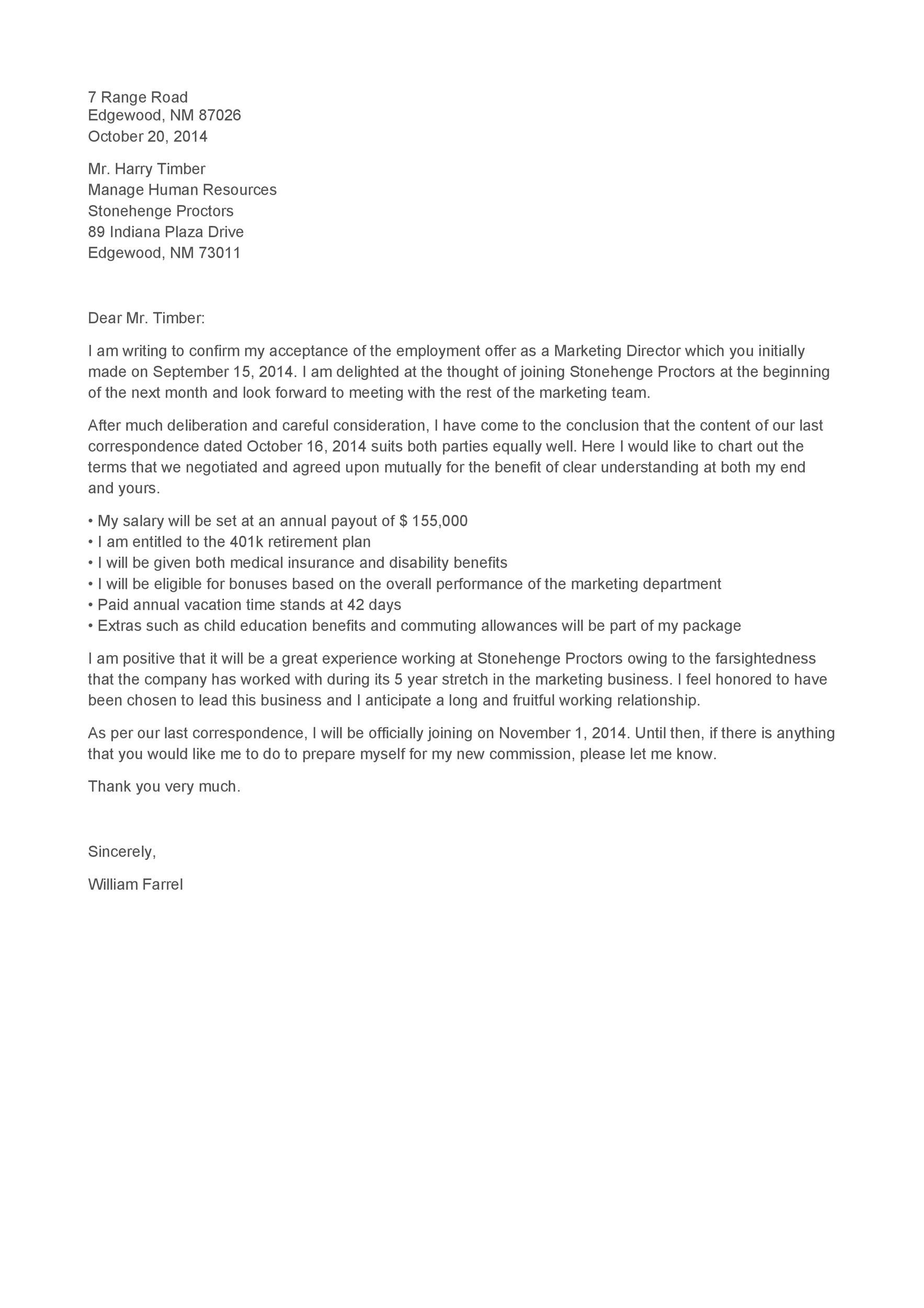 Learn and to negotiate salary email confidence clarity. Find tips, tools, templates counteroffer job offer request raise.
Learn and to negotiate salary email confidence clarity. Find tips, tools, templates counteroffer job offer request raise.
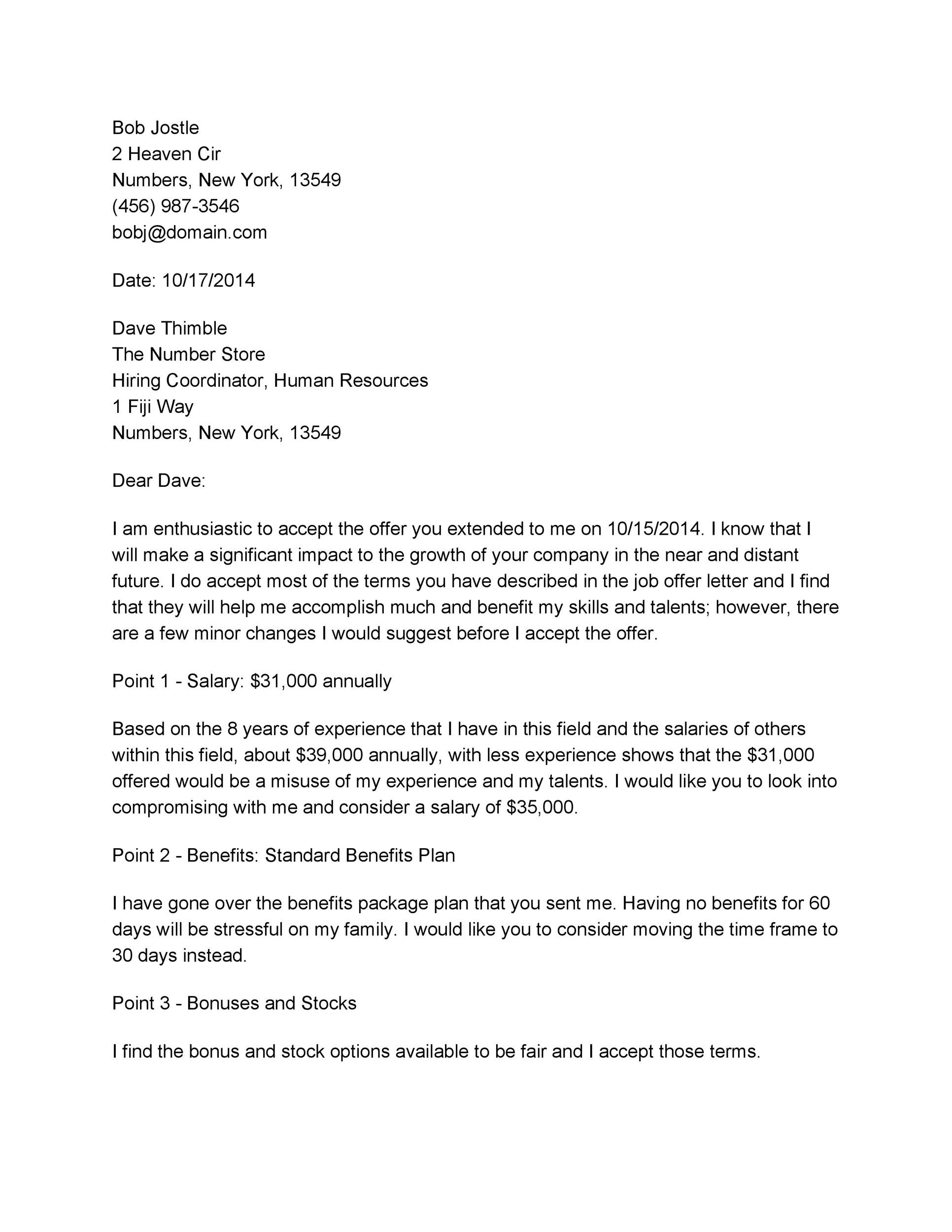 How write salary negotiation email: 7 steps. any formal correspondence, salary negotiation email be professional courteous. your time, include following: 1. clear subject . Leave topic salary the body the email. Instead, create relevant subject line doesn't mention compensation.
How write salary negotiation email: 7 steps. any formal correspondence, salary negotiation email be professional courteous. your time, include following: 1. clear subject . Leave topic salary the body the email. Instead, create relevant subject line doesn't mention compensation.
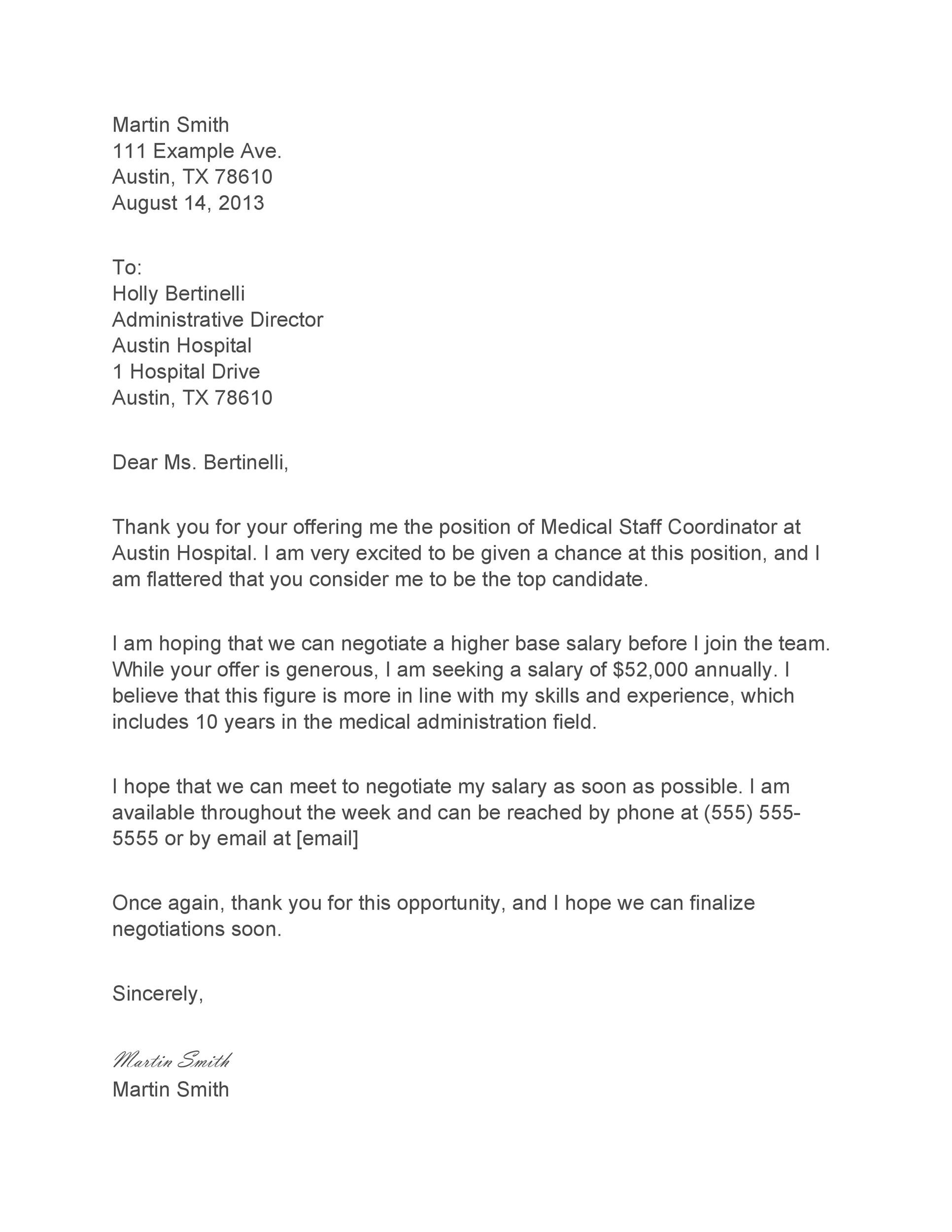 49 Best Salary Negotiation Letters, Emails & Tips ᐅ TemplateLab
49 Best Salary Negotiation Letters, Emails & Tips ᐅ TemplateLab

